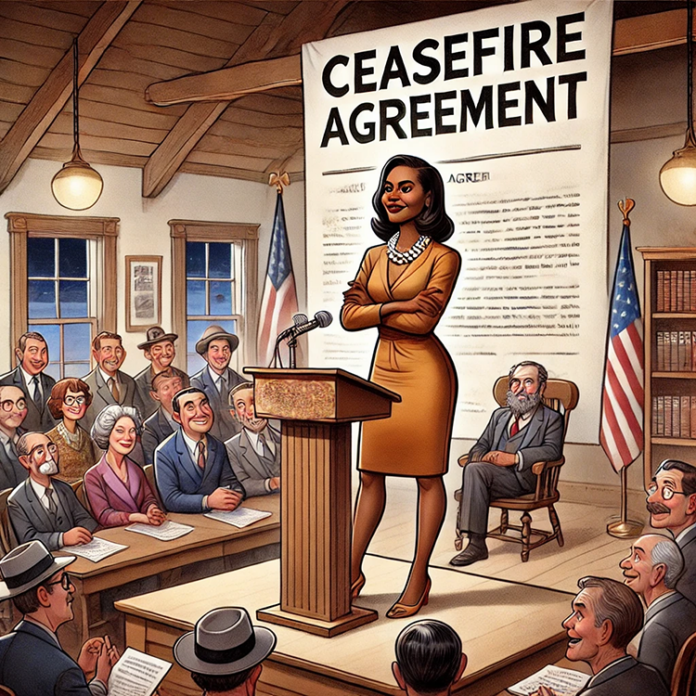When Local Governance Meets Global Aspirations
In the quaint, bustling township of East Brunswick, a new contender has emerged in the mayoral race, armed not with the usual promises of pothole repairs and park improvements, but with a grand vision: a ceasefire in Gaza. Yes, you read that correctly—Dr. G, a cardiologist by trade and a peace advocate by passion, has decided to challenge the local government for its lack of initiative in global diplomacy. Spoiler alert: The mayor has no power over international conflicts, but don’t tell Dr. G about that just yet.
The Reality Check That’s Waiting to Happen
Dr. G’s campaign is built on a foundation of noble intentions. She has been tirelessly advocating for a ceasefire in Gaza, attending council meetings, and urging the local government to take a stand. When Mayor C. and the council declined to draft a resolution on the matter, Dr. G’s course of action became clear—if you want something done, you have to do it yourself. So, why not become mayor?
However, there’s a small hiccup in this plan that might leave Dr. G somewhat disappointed. The fact that the mayor of East Brunswick, while undoubtedly a powerful position within the confines of the township, holds approximately zero influence over international military actions might come as a surprise to her. One can only imagine the look of realization on her face when she discovers that, as mayor, she’ll have her hands full with local zoning laws rather than peace treaties.
The Shocking Truth: Mayors Can’t Negotiate Ceasefires
For those unfamiliar with the inner workings of local government, allow me to clarify: the mayor’s office typically focuses on issues like road maintenance and waste management and occasionally mediates disputes between neighbors over fence heights. International diplomacy? Not so much. Despite this, Dr. G remains undeterred, convinced that East Brunswick can somehow become the epicenter of a global peace movement.
It’s as if she believes that once elected, her first day in office will involve a conference call with world leaders, followed by a quick resolution to the conflict. Unfortunately, her most pressing global challenge might end up being a disagreement between the township’s recycling center and the size of garbage cans.
From Ceasefires to Traffic Stops: The Harsh Transition
If elected, Dr. G will likely find that her lofty goals will need to be recalibrated. Instead of penning ceasefire agreements, she’ll be drafting memos on snow removal strategies, and brine vs. salt usage. Her experience as a cardiologist will undoubtedly be useful when she realizes how much caffeine she’ll need to get through endless budget meetings. And those peaceful protests she’s been attending? They might soon be replaced with slightly less glamorous town hall discussions on property taxes.
The Vote That Won’t Stop a War But Might Fix a Pothole
As Election Day approaches, the citizens of East Brunswick will cast their votes, possibly hoping that Dr. G’s passion and determination can bring about some positive changes—if not globally, then at least locally. And while it’s unlikely that East Brunswick’s next mayor will end the conflict in Gaza, perhaps they can at least make the town’s streets a little smoother, the parks even better than they are now, and the budget a little more balanced.
In the end, it’s the small victories that count in local politics. But if you happen to see Dr. G at a post-election celebration, maybe don’t mention the whole “mayors can’t negotiate ceasefires” thing. Let her have her moment of hope—she’ll figure it out soon enough.




